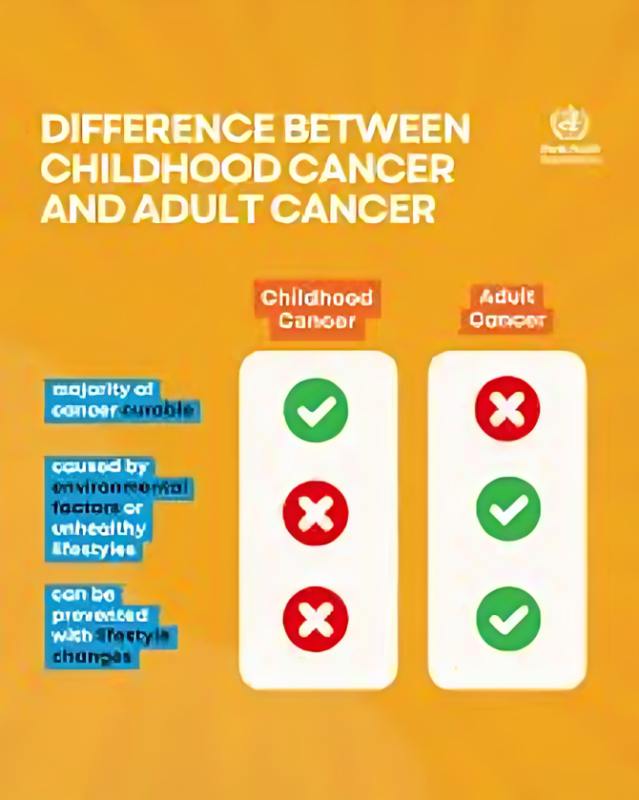Jasmin Hundal, Hematology Oncology Fellow at Cleveland Clinic, shared a post on LinkedIn:
“What Drives Cancer Risk in Adults vs. Children?
A recent WHO post sparked a discussion on how cancer risk factors differ between adults and children.
While nearly 40% of cancers are linked to modifiable risk factors, inherent biological factors also play a critical role in cancer development. These non-modifiable risks—including genetics, aging, and hormonal influences—are key determinants in individual susceptibility to cancer.
Genetic Predisposition:
- Hereditary mutations in genes like BRCA1/BRCA2 significantly increase the risk of breast, ovarian, and prostate cancers.
- Lynch syndrome (deficient DNA mismatch repair) is associated with colorectal and endometrial cancers.
- TP53 mutations drive early-onset cancers, including breast cancer, sarcomas, and brain tumors.
- Polygenic risk scores help refine individual cancer risk beyond single-gene mutations.
Aging and Cancer Risk:
- Accumulated genetic mutations in tumor suppressor genes (e.g., TP53, RB1) increase cancer susceptibility over time.
- Epigenetic modifications can silence tumor suppressor genes, facilitating tumor growth.
- Declining immune surveillance reduces the body’s ability to detect and eliminate emerging cancer cells.
- Chronic inflammation and oxidative stress contribute to DNA damage and tumor progression.
Hormonal and Biological Influences:
- Hormonal exposure.
- Androgen signaling influences prostate cancer risk.
- Parity and breastfeeding
Environmental and Random Factors:
- Spontaneous DNA replication errors occur with aging and contribute to sporadic cancers.
- Oxidative stress and reactive oxygen species accelerate DNA damage.
- Growth factors, such as IGF-1 and insulin, can promote tumor progression in metabolic disorders.
While non-modifiable risk factors cannot be changed, their identification allows for personalized risk assessment, proactive screening, and tailored prevention strategies to improve outcomes.



